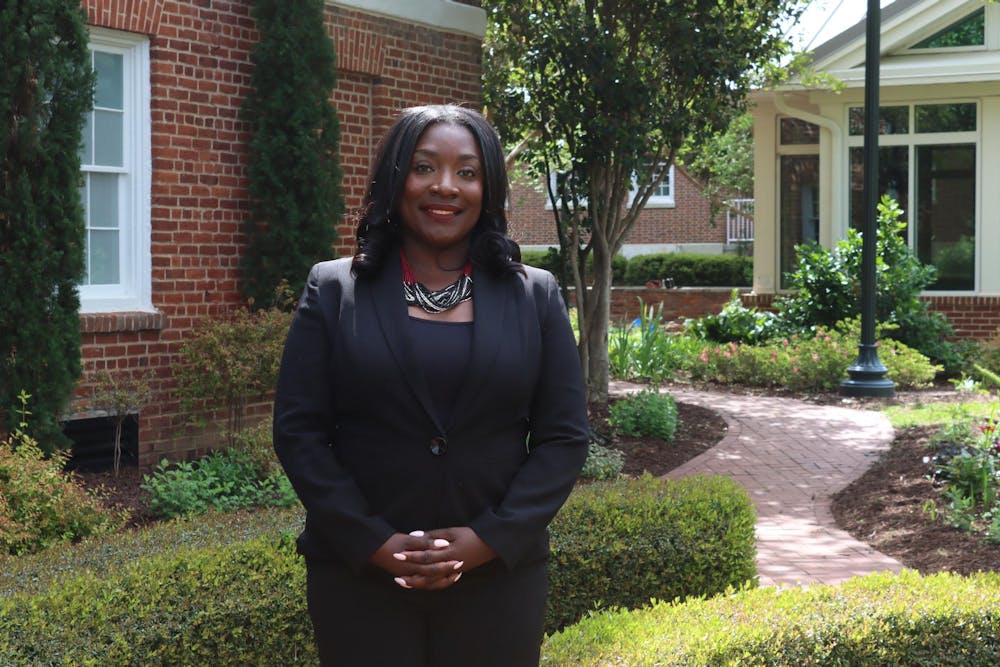Female leaders from various colleges across USC said it is important for women to assume positions of power in both the academic and professional world because their voice brings a new perspective to light.
Dr. Rushondra James, the assistant dean for Student Success at the College of Information and Communications, said she believes women should be able to choose any career path they want to become successful in.
In terms of the journalism and communications field, James said everyone's lived experiences need to be considered to create an accurately represented workroom.
"If we're not a part of the conversation and we're not helping to shape the narrative, then the narrative is being shaped about us," James said, "Everybody brings a lived experience. If the woman's voice isn't there, then that means somebody's reality is not being represented."
Being able to fill out a room based on demographics that are missing provides more of al level perspective, James said.
Along with the workforce, James also advocates for more inclusion around campus by promoting female scholars and supporting women of all positions — from the directors and assistant deans to the women that clean the buildings and drive the buses. This makes women feel valued across all areas of campus, she said.
Deborah Hazzard, the associate dean for Access, Opportunity and Community Engagement at the Darla Moore School of Business, said diverse perspectives are needed in a corporate environment to formulate better decisions and outcomes in the workforce.
"We've got 10 people in the room, and all of them have similar backgrounds, similar identities, similar perspectives and experiences. Where's the diverse perspective there that's going to maybe tell us something that is really important, but we're not aware of because it's not something that impacts us based on who we are?" Hazzard said.
Hazzard said the national initiative HerStory helps women share their own experiences with inequality, as most stories about women's history are told predominantly by male historians. She said this initiative is important because it gives the most accurate perspective in terms of female experiences and their contributions to society.
Many companies display their views on representation through their websites, where much of their information is located, Hazzard said. A person can often determine a company's values by assessing these platforms, she said.
"Who do you see? Who do you not see? What appears to be important? What's being elevated and amplified and what's not being?" Hazzard said.

Hazzard said she believes more inclusive environments can be created through pipeline and pathway programs, which aim to increase minority representation within the Darla Moore School of Business.
Hazzard and the school have been collaborating various local school districts, including Richland and Florence, to help give lesser represented demographics insights on how to engage at the Darla Moore School of Business if given the opportunity.
Both Hazzard and James have many women that they look up to as female leaders, including American poet Maya Angelou, South Carolina women's basketball coach Dawn Staley and American novelist Toni Morrison.
Emily Allen, an instructor for both the School of Music and Institute of Southern Studies, said she is grateful for the female figures in musicology because they demonstrate that women can be successful in the male-dominated field. Among them are Regina Bradley, an award-winning writer who researches the history of Southern hip-hop, and Carrie Tipton, who writes about marching bands, SEC fight songs and general southern U.S. culture.
Allen said her biggest piece of advice for young women looking for their place in the workforce is to find mentors of their own and take inspiration from them.
"If there's (a fellow woman) in your field ... ask yourself why you look up to them, and look at their trajectory, and see how you can emulate that or make a given career path of your own," Allen said.

